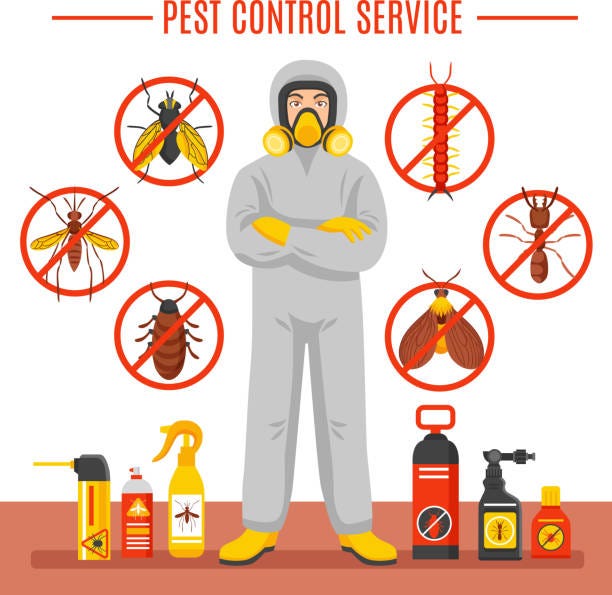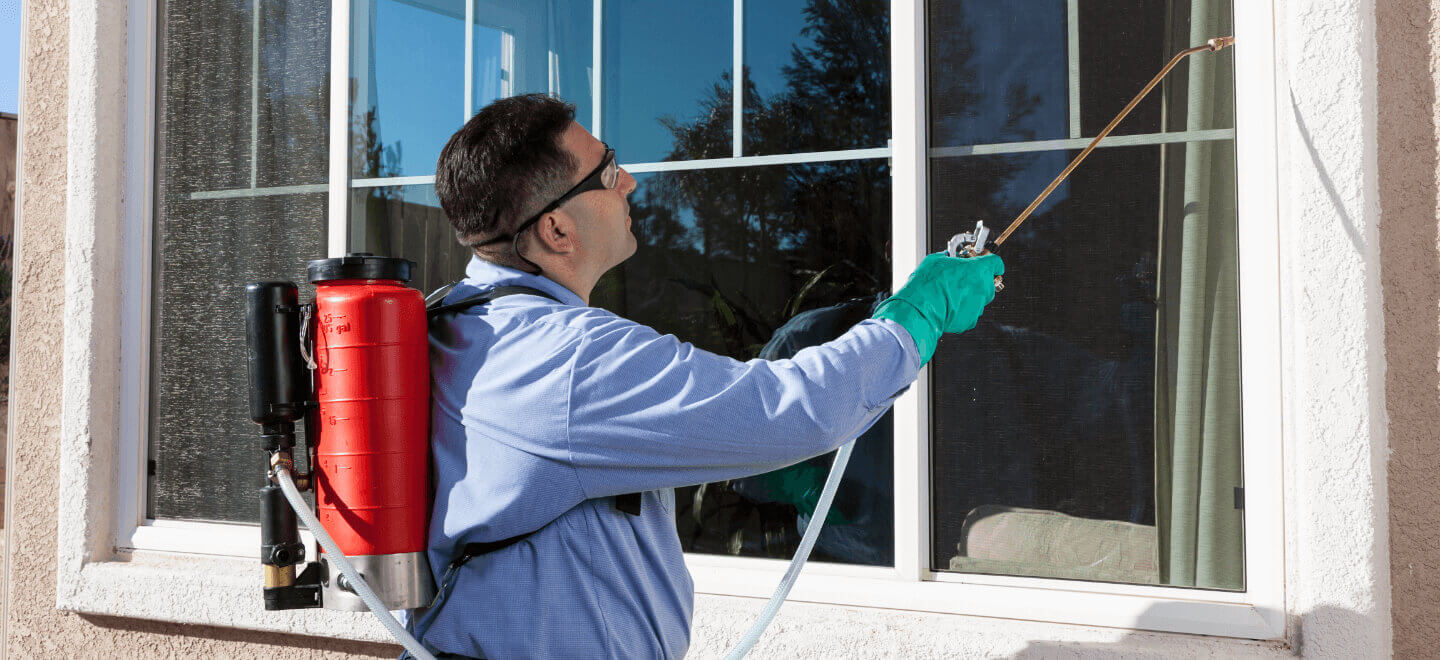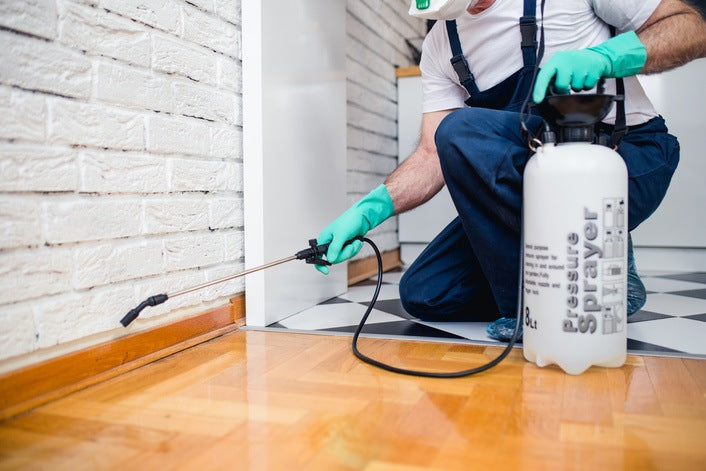Orem Pest Control Experts: Safeguarding Your Residential Property with Proven Approaches
Orem Pest Control Experts: Safeguarding Your Residential Property with Proven Approaches
Blog Article
Discovering the Different Kinds of Parasite Control Techniques and Their Applications
Bug control is a critical aspect of maintaining a healthy and safe atmosphere, whether it be in domestic, industrial, or agricultural setups. Numerous methods have actually been created and improved throughout the years to efficiently alleviate and take care of parasite invasions. From chemical approaches that target specific parasites to biological approaches that harness all-natural killers, the world of insect control is diverse and vast. Recognizing the different kinds of bug control methods and their applications is necessary for applying the most lasting and appropriate services. Allow's explore the complexities of these methods and exactly how they can be successfully used to attend to pest-related challenges.
Chemical Insect Control Techniques
Chemical pest control methods are commonly utilized in agriculture and insect management to effectively remove or manage pest infestations. These techniques entail the use of chemical substances, such as insecticides, pesticides, and herbicides, to get rid of or minimize bug populaces that position a risk to plants, livestock, or human wellness.
While chemical parasite control techniques can be highly efficient in handling parasite populaces, they likewise raise concerns concerning possible environmental and health and wellness threats. Improper use or overuse of chemical pesticides can cause pollution of air, water, and soil, harming non-target microorganisms and creating long-lasting ecological damage. Additionally, repeated exposure to chemical deposits might pose wellness threats to farmworkers, customers, and wild animals. It is crucial to comply with security standards, utilize incorporated pest management strategies, and take into consideration alternate approaches to decrease the unfavorable influences of chemical bug control strategies.
Organic Bug Control Approaches
 Organic bug control methods use living organisms to take care of and decrease parasite populations in a sustainable and eco friendly manner. One typical technique is the launch of ladybugs to battle aphids in gardens, as ladybugs are all-natural killers of these damaging parasites.
Organic bug control methods use living organisms to take care of and decrease parasite populations in a sustainable and eco friendly manner. One typical technique is the launch of ladybugs to battle aphids in gardens, as ladybugs are all-natural killers of these damaging parasites.
Organic bug control methods supply a number of advantages over chemical approaches. They are normally more secure for the environment, as they do not leave dangerous residues or add to contamination. Furthermore, these approaches are commonly much more targeted, influencing just the pest types without hurting useful insects or other organisms. Furthermore, organic control can be a long-term solution, as the presented microorganisms can establish sustainable populaces and give ongoing insect management. On the whole, organic pest control methods present a natural and efficient option to traditional chemical therapies, promoting a balanced ecosystem and healthier settings.
Physical Pest Control Approaches
Making use of physical techniques to manage bugs includes the usage of mechanical or non-chemical methods to alleviate and handle insect problems successfully. One typical physical insect control method is the installation of fences, screens, or webs to obstruct bugs from going into particular locations.
An additional physical approach is the use of traps, such as breeze traps for rodents or scent traps for pests. These traps aim more helpful hints to catch insects without posturing any threat to people or the setting. Furthermore, physical control techniques can include strategies like handpicking bugs off plants, utilizing vacuum devices to get rid of pests, or using heat therapies to remove bed pests and other parasites in infested areas.
Integrated Pest Monitoring Techniques
Carrying out an alternative technique to pest administration, Integrated Insect Administration (IPM) strategies intend to integrate numerous reliable methods to manage and avoid insect problems while reducing ecological effect and making sure lasting parasite control methods. IPM involves the assimilation of several control techniques such as biological control, social practices, mechanical control, and the mindful use chemicals.

In addition, IPM emphasizes the value of surveillance and assessing pest populations to identify one of the most appropriate control techniques. By carrying out IPM methods, bug control efforts become a lot more targeted and reliable, reducing the threats connected with extreme chemical use and promoting long-lasting parasite administration services.
Natural and Organic Insect Control Options

One preferred natural pest control approach is neem oil, originated from the seeds of Related Site the neem tree, which works link as a repellent and disrupts the development and growth of pests. Diatomaceous planet, an all-natural silica-based powder, is an additional efficient organic parasite control alternative that works by dehydrating bugs upon contact. By incorporating all-natural and natural insect control alternatives into insect management strategies, individuals can successfully control parasites while decreasing injury to the setting and promoting lasting techniques.
Final Thought
To conclude, different parasite control strategies such as chemical, biological, physical, incorporated pest administration, and all-natural options are available for successfully taking care of insect infestations. Each approach has its very own benefits and applications relying on the kind of parasite and the atmosphere. By recognizing the different kinds of pest control strategies and their applications, individuals can make informed choices on one of the most suitable technique to regulate insects and protect their building.
Chemical pest control strategies are widely made use of in agriculture and insect administration to properly remove or manage pest invasions - Orem Pest Control. Natural parasite control approaches include utilizing biological control agents, such as predators or bloodsuckers, to take care of bug populaces. By including natural and all-natural insect control options right into pest administration techniques, individuals can effectively control pests while decreasing harm to the atmosphere and advertising sustainable methods
In final thought, different insect control strategies such as chemical, organic, physical, integrated bug management, and all-natural alternatives are offered for efficiently taking care of insect problems. By comprehending the various kinds of bug control techniques and their applications, people can make informed choices on the most appropriate technique to control parasites and secure their residential property.
Report this page